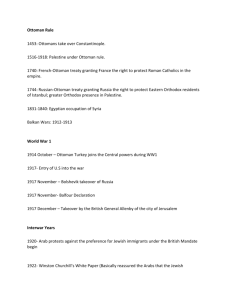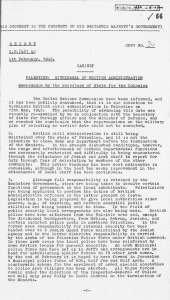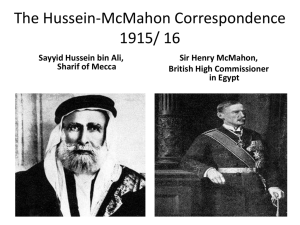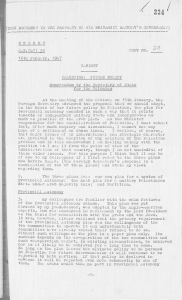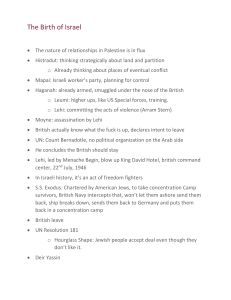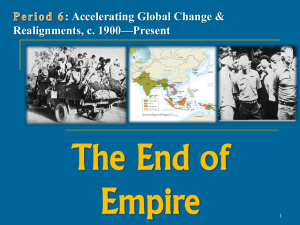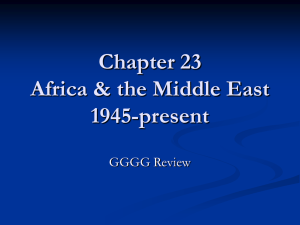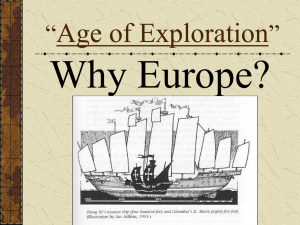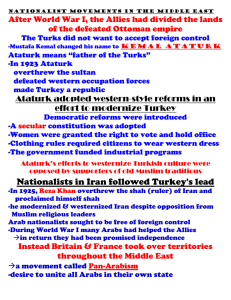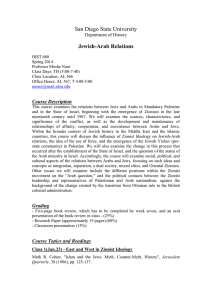The Middle East – 1900 - 1945
advertisement
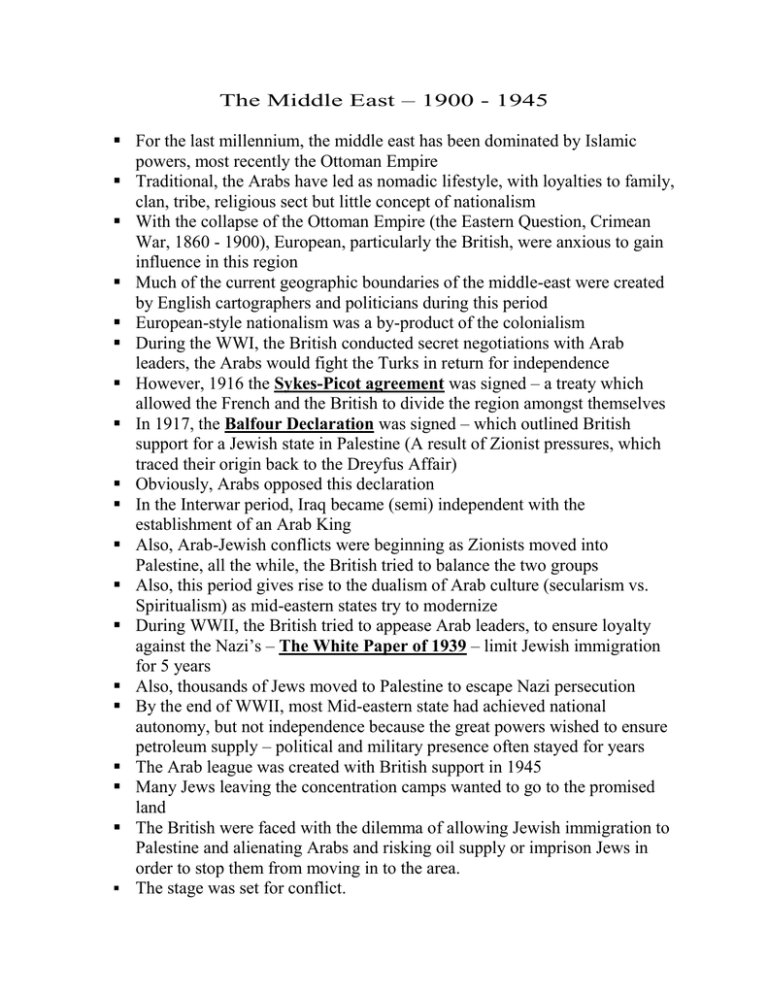
The Middle East – 1900 - 1945 For the last millennium, the middle east has been dominated by Islamic powers, most recently the Ottoman Empire Traditional, the Arabs have led as nomadic lifestyle, with loyalties to family, clan, tribe, religious sect but little concept of nationalism With the collapse of the Ottoman Empire (the Eastern Question, Crimean War, 1860 - 1900), European, particularly the British, were anxious to gain influence in this region Much of the current geographic boundaries of the middle-east were created by English cartographers and politicians during this period European-style nationalism was a by-product of the colonialism During the WWI, the British conducted secret negotiations with Arab leaders, the Arabs would fight the Turks in return for independence However, 1916 the Sykes-Picot agreement was signed – a treaty which allowed the French and the British to divide the region amongst themselves In 1917, the Balfour Declaration was signed – which outlined British support for a Jewish state in Palestine (A result of Zionist pressures, which traced their origin back to the Dreyfus Affair) Obviously, Arabs opposed this declaration In the Interwar period, Iraq became (semi) independent with the establishment of an Arab King Also, Arab-Jewish conflicts were beginning as Zionists moved into Palestine, all the while, the British tried to balance the two groups Also, this period gives rise to the dualism of Arab culture (secularism vs. Spiritualism) as mid-eastern states try to modernize During WWII, the British tried to appease Arab leaders, to ensure loyalty against the Nazi’s – The White Paper of 1939 – limit Jewish immigration for 5 years Also, thousands of Jews moved to Palestine to escape Nazi persecution By the end of WWII, most Mid-eastern state had achieved national autonomy, but not independence because the great powers wished to ensure petroleum supply – political and military presence often stayed for years The Arab league was created with British support in 1945 Many Jews leaving the concentration camps wanted to go to the promised land The British were faced with the dilemma of allowing Jewish immigration to Palestine and alienating Arabs and risking oil supply or imprison Jews in order to stop them from moving in to the area. The stage was set for conflict.
